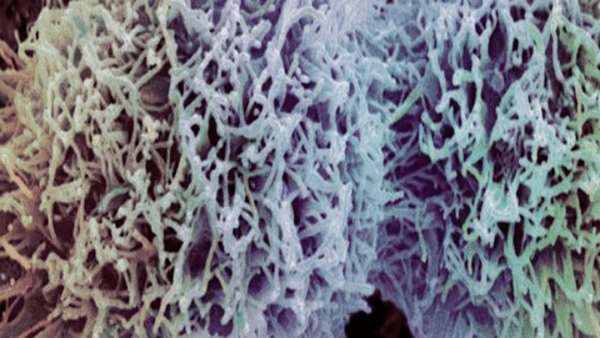A team from the Hubrecht Institute (Utrecht, The Netherlands) has developed the first patient-derived organoid model for cervical cancer. This novel system provides an excellent model to study the human cervix.
Their results were recently published in the journal Cell Stem Cell.
Organoids, derived from stem cells, are tiny 3D tissue cultures that mimic the function of an organ. In their study, the team developed an organoid-based model for the healthy cervix and associated malignancies including cervical cancer – often caused by a virus known as the human papillomavirus (HPV).
“For our study, we used a herpes virus – herpes simplex virus-1 (HSV-1) – to demonstrate the potential of the model for research into sexually transmitted infections,” commented first author of the study, Kadi Lõhmussaar (Hubrecht Institute).
“Cervical cancer is often caused by HPV infection, but research into this virus was complicated as the virus is difficult to culture in the lab. Our new model might be able to overcome this obstacle,” continued Lõhmussaar.
Additionally, the team developed tumoroids – organoids grown from cancerous tissue that mimic the features of cervical cancer.
“Hopefully in the future, we can predict which chemotherapy will work best for specific patients based on results obtained in the tumoroids,” explained Lõhmussaar.
What’s more, the group also explored creating organoids from the patient’s own pap-brush material – allowing for in-depth analyses of the living cells that might be on their way to become cancerous.
“This will hopefully facilitate a rapid generation of additional organoid-based cervical cancer biobanks worldwide. That would offer new means for advancing research into cervical biology and associated diseases,” concluded Lõhmussaar.
Link: https://www.regmednet.com/first-patient-derived-organoid-model-developed-for-cervical-cancer/




ارسال به دوستان